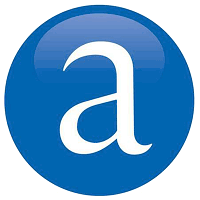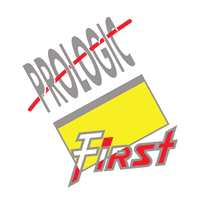Description

Amadeus

SymphonyHMS
Comprehensive Overview: Amadeus vs SymphonyHMS
Amadeus
a) Primary Functions and Target Markets
Amadeus primarily operates within the travel and tourism industry, offering a robust suite of technology solutions and services. Its systems are designed to cater to airlines, hotels, travel agencies, railways, and airport operators. The primary functions include:
- Global Distribution System (GDS): Connecting travel agencies with airlines, hotels, and car rental services.
- IT Solutions: Handling reservations, inventory management, departure control systems, and more for airlines.
- Hospitality Solutions: Providing property management systems (PMS), central reservation systems (CRS), and revenue management tools for hotels.
- Payment Solutions: Secure and efficient payment processing options for the travel sector.
Amadeus's target market extends to a wide array of sectors within the travel ecosystem, including:
- Airlines seeking advanced IT and distribution solutions.
- Hotels looking for integrated management systems.
- Travel agencies requiring a one-stop-shop for booking services.
b) Market Share and User Base
Amadeus is one of the leading companies in the travel technology sector, alongside other major players like Sabre and Travelport. It holds a significant share of the GDS market. The company's vast network spans globally, with a strong presence in Europe and growing influence in North America and Asia-Pacific. Amadeus serves hundreds of airlines and thousands of hotels worldwide, making it a dominant force in the industry.
c) Key Differentiating Factors
- Comprehensive Ecosystem: Amadeus offers a full spectrum of services across various travel sectors, making it a one-stop solution for many businesses.
- Innovation and R&D Investment: Continuous investment in technology and innovation is a hallmark of Amadeus, with significant resources allocated to product development and improvement.
- Strong Partnerships: Amadeus has forged strong partnerships with leading airlines and hotels, enhancing its service offerings and market reach.
SymphonyHMS
a) Primary Functions and Target Markets
SymphonyHMS is a hospitality management system designed specifically for hotels and resorts, aiming to streamline operations, enhance guest experiences, and optimize revenue. Its primary functions include:
- Property Management System (PMS): Efficient management of bookings, check-ins, check-outs, and housekeeping.
- Central Reservation System (CRS): Centralized handling of reservations across multiple channels.
- Revenue Management: Tools for dynamic pricing strategies and maximizing occupancy.
- Guest Experience Management: Solutions for improving guest interactions and satisfaction.
The target market for SymphonyHMS includes:
- Small to medium-sized hotels seeking cost-effective and efficient management solutions.
- Larger hotel chains looking for scalable and integrated property management tools.
b) Market Share and User Base
SymphonyHMS competes with other specialized hotel management systems like Opera by Oracle, RoomRaccoon, and Cloudbeds. Its market share is more niche compared to broader GDS providers like Amadeus, focusing primarily on the hospitality segment. It appeals to a diverse user base within the hospitality industry, particularly those prioritizing integration and user-friendly interfaces.
c) Key Differentiating Factors
- Specialization in Hospitality: Unlike Amadeus, SymphonyHMS is tailored specifically for hotels and resorts, providing industry-specific features and functionalities.
- User Interface and Accessibility: Known for its intuitive interface, SymphonyHMS is designed to be user-friendly, minimizing training and onboarding time.
- Scalability for Different Hotel Sizes: It offers adaptable solutions for various hotel sizes, from boutique operations to larger chains.
Comparison Conclusion
Amadeus and SymphonyHMS serve distinct segments within the travel and hospitality industry. Amadeus offers a comprehensive range of solutions extending beyond hospitality to encompass the entire travel ecosystem, with a significant market share in the GDS space. SymphonyHMS, on the other hand, focuses specifically on the hospitality sector, providing specialized solutions that directly cater to hotel management needs. The choice between the two depends on the specific requirements of the business and the extent of integration needed across different travel and hospitality services.
Contact Info

Year founded :
2019
Not Available
Not Available
South Korea
Not Available

Year founded :
Not Available
Not Available
Not Available
India
Not Available
Feature Similarity Breakdown: Amadeus, SymphonyHMS
As of my last update, a detailed comparison of Amadeus and SymphonyHMS in terms of feature similarity might involve observing their common core functionalities and unique aspects, especially for hotel management systems. While I can provide a general breakdown based on typical features offered by such systems, specifics might vary depending on product updates or versions.
a) Core Features in Common
Both Amadeus and SymphonyHMS as hotel management systems likely share several core features commonly found in such platforms:
-
Reservation Management: Both systems provide comprehensive tools for managing room reservations, including booking, cancellations, and modifications.
-
Front Office Management: They likely facilitate check-ins, check-outs, and handling guest requests.
-
Billing and Invoicing: Systems include capabilities to generate bills and manage invoices and payments, often integrated with various payment gateways.
-
Housekeeping Management: This includes scheduling housekeeping tasks and monitoring room statuses.
-
Guest Communication: Providing options for engaging with guests, such as confirmation emails and marketing messages.
-
Reporting and Analytics: Both systems probably offer reporting features to provide insights into occupancy rates, revenue, and other key performance indicators.
-
Inventory Management: Managing room inventory and availability would be a common feature.
-
Integration Capabilities: Ability to integrate with other systems such as POS, CRM, and third-party booking engines.
b) User Interface Comparison
The user interface (UI) of any software can differ significantly in terms of design, usability, and intuitiveness, which affects user experience (UX):
-
Amadeus: Typically known for a modern and user-friendly interface, focused on streamlining operations with minimal training. Its UI is often designed to be intuitive for users with varying technical skills.
-
SymphonyHMS: Also designed with user friendliness in mind, it might emphasize efficiency for front desk operations and backend management. The interface likely aims for operational clarity and minimizing the time spent on tasks.
Comparative UI attributes that often appeal to users include clean design, intuitive navigation, responsive support, and personalized configurations.
c) Unique Features
While specifics can depend on the exact version or deployment, here's a general look at some potential unique features:
-
Amadeus:
- Known for its strong global distribution system (GDS) capabilities, providing extensive connectivity for worldwide sales channels.
- Emphasizes data-driven decision-making with advanced analytics and business intelligence tools.
- Enhanced revenue management tools to optimize pricing strategies.
-
SymphonyHMS:
- Might focus on local market needs with customizable modules tailored for specific operational requirements in various regions.
- Potentially more emphasis on affordability and scalability, targeting a variety of property sizes.
These unique features depend on the specific implementation and may evolve with new versions and updates. It’s advisable to consult directly with the vendors for the most current and detailed feature sets.
Features

Not Available

Not Available
Best Fit Use Cases: Amadeus, SymphonyHMS
a) Best Fit Use Cases for Amadeus
Amadeus is a leading technology provider for the global travel and tourism industry. It offers a wide range of solutions catering to travel agencies, airlines, hotels, and other sectors within the travel ecosystem.
For Amadeus:
- Travel Agencies: Amadeus is an excellent choice for travel agencies seeking a comprehensive platform for booking flights, hotels, and other travel services. Its Global Distribution System (GDS) connects agencies with a vast network of travel providers, facilitating efficient itinerary planning and seamless transactions.
- Airlines: Airlines benefit from Amadeus's robust suite of solutions, including Revenue Management, Reservation & Inventory Systems, and Departure Control Systems that help in streamlining operations, optimizing seat inventory, and enhancing customer experience.
- Hospitality Sector: Hotels can leverage Amadeus's Property Management Systems (PMS) and central reservation solutions to improve booking management and distribution through multiple channels.
- Tour Operators: Companies involved in organizing packaged tours can utilize Amadeus for efficient itinerary planning and ticketing services.
b) Preferred Use Cases for SymphonyHMS
SymphonyHMS (Hospital Management System) is a healthcare management software designed to streamline operations, improve patient care, and enhance administrative efficiency in healthcare facilities.
For SymphonyHMS:
- Hospitals and Clinics: SymphonyHMS is most suitable for hospitals and clinics that need a comprehensive system to manage patient records, appointments, billing, laboratory information, pharmacy management, and radiology.
- Diagnostic Centers: These centers can use SymphonyHMS to manage patient data, lab tests, and results efficiently, ensuring seamless communication across departments.
- Healthcare Groups: Larger healthcare entities that manage multiple facilities can use SymphonyHMS for centralized management of patient records and resources, leading to improved oversight and coordination.
d) Industry Verticals and Company Sizes
-
Amadeus:
- Industry Verticals: Primarily focuses on travel and tourism, including airlines, travel agencies, hotels, and tour operators.
- Company Sizes: Amadeus serves a broad range of company sizes—from small travel agencies that require booking solutions to large airline corporations in need of comprehensive management systems.
-
SymphonyHMS:
- Industry Verticals: Specializes in the healthcare industry, catering to hospitals, clinics, diagnostic centers, and healthcare groups.
- Company Sizes: Suitable for small to large healthcare facilities, including single-location clinics and large hospital networks, by offering scalable solutions that can adapt to different operational complexities and patient volumes.
Both Amadeus and SymphonyHMS are designed to meet the specific needs of their respective industries, offering functionality and scalability that cater to a wide range of operational requirements.
Pricing

Pricing Not Available

Pricing Not Available
Metrics History
Metrics History
Comparing undefined across companies
Conclusion & Final Verdict: Amadeus vs SymphonyHMS
To provide a comprehensive conclusion and final verdict for choosing between Amadeus and SymphonyHMS, let's break down each section:
a) Best Overall Value
Amadeus: Amadeus is a leader in the hospitality software industry, offering a broad range of features that cater to large hotel chains and independent establishments. Its robust solutions include property management, revenue management, and advanced distribution systems. Its reputation, extensive integrations, and exceptional customer support can justify its premium pricing.
SymphonyHMS: SymphonyHMS is designed to cater to small and mid-sized hotels, offering a comprehensive yet straightforward solution. It provides essential features like reservation management, front desk operations, and housekeeping management at a more affordable rate. For budget-conscious properties looking for essential functionality without complex integrations, SymphonyHMS offers excellent value.
Conclusion: Considering all factors, the best overall value depends largely on the size and needs of the hotel. For larger hotels seeking advanced functionalities and extensive integration options, Amadeus provides better value. However, for smaller establishments looking for affordable and easy-to-use software, SymphonyHMS is more suitable.
b) Pros and Cons
Amadeus:
Pros:
- Comprehensive suite of features for larger scale operations.
- Strong capabilities in revenue management and business intelligence.
- Highly reputable with robust customer support.
Cons:
- Higher cost, which may not be feasible for smaller hotels.
- Complexity in setup and training due to feature richness.
- May offer more features than necessary for smaller operations.
SymphonyHMS:
Pros:
- Cost-effective for small to mid-sized hotels.
- Easy to use with straightforward interfaces.
- Quick implementation and minimal training required.
Cons:
- Limited features compared to more robust solutions.
- May lack advanced integrations and customization options.
- Not as suitable for large-scale operations or chains.
c) Recommendations
For users deciding between Amadeus and SymphonyHMS, consider the following recommendations:
-
Assess Your Needs: Determine the scale of operations and specific features that are vital for your business. If your hotel chain requires advanced capabilities and global distribution integrations, Amadeus might be the better choice. Conversely, if you run a smaller operation that prioritizes essential features and budget constraints, SymphonyHMS could serve you well.
-
Budget Consideration: Evaluate your financial capabilities and willingness to invest in software. If budget allows for it, and the operational complexity demands it, opting for the more expensive but richer features of Amadeus can offer a comprehensive solution.
-
Scalability: Consider your future business growth when choosing a system. If you plan on expanding, investing in a scalable solution like Amadeus from the outset can prevent future migration hassles.
-
Trial and Demos: Both products might offer trials or demos. Take advantage of these to explore the user interfaces and ensure they align with your staff’s capabilities and your operational requirements.
-
Support and Community: Research the customer support available and consider the user community of each product. A strong support system can be critical in resolving initial setup issues and ongoing maintenance.
Ultimately, the decision should be influenced by the specific requirements, budget, and strategic direction of the hotel business. Each solution serves different segments effectively, and weighing these aspects will guide an informed choice.
Add to compare
Add similar companies



